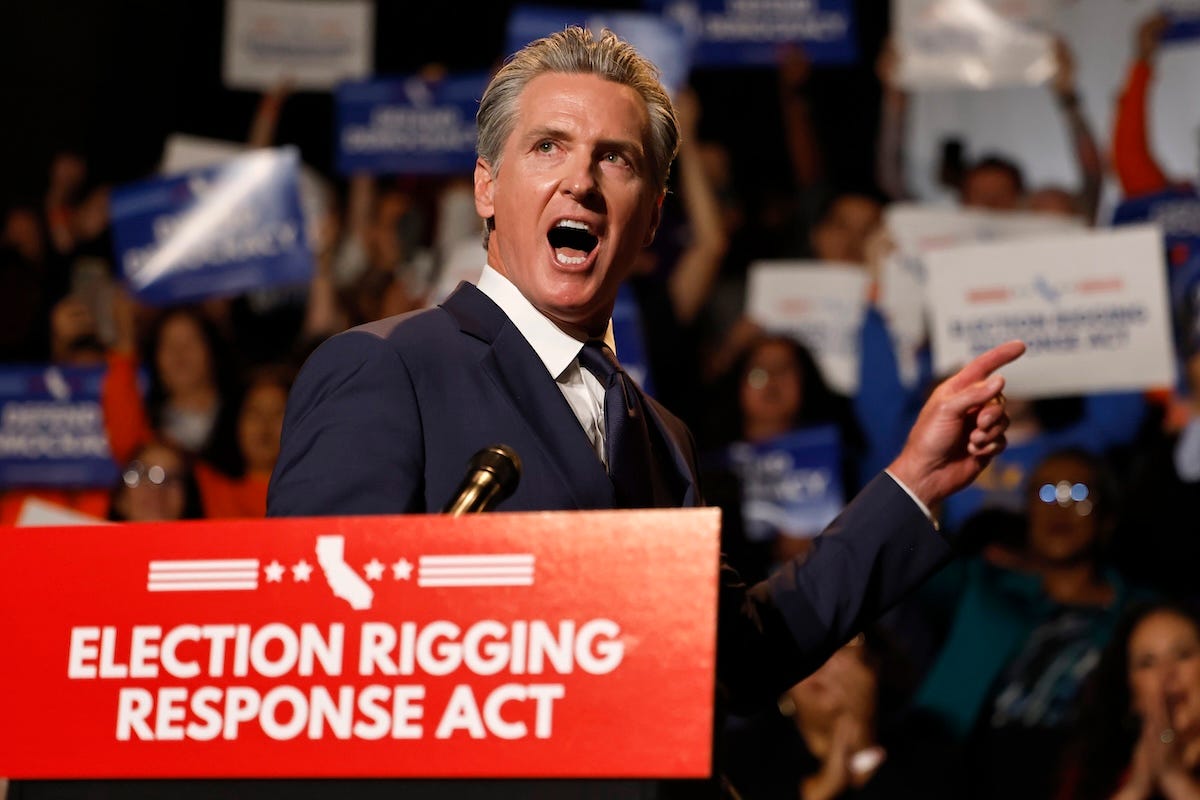Is A Two-Party Nation With One Half-Fascist Party Doomed?
Inside the mailbag: Gerrymandering ... Journey ... SNAP
Luke Christofferson: Do you buy the idea that there is a meaningful difference between “war time generals” and “peace time generals” in relation to Democratic leadership? Do you think there are some people better suited for leadership in vigorously opposing Trump/MAGA that would do worse in a more normal environment and vice versa? Or is it closer to the truth that “more is more” and good leaders will succeed in either environment (and bad leaders will fail in either)?
In almost all cases, it’s the former. There are surely some unicorns out there (Abraham Lincoln? LBJ?). But I don’t think reaching this conclusion requires a deep study of politics or anything else, beyond moving through life and recognizing that people have different competencies, and few of us truly excel at multiple things.
Nancy Pelosi, in her leadership years, was an incredible legislator. As a former appropriator, she knew the government and its budget intimately. She knew policy well enough to make sure Democratic initiatives cohered and advanced underlying substantive goals. But her unparalleled skill was consensus building, and she had to test this over and over again, because unlike many Democratic officials, she sought majorities so she could spend them down on worthy goals. She familiarized herself with her members down to the granular details of their lives. Like many experienced operators, she understood the political contours of a huge number of House districts, and, thus, why members had certain hangups. But she also knew their eccentricities and members of their families. She would draw on this huge wealth of information to persuade reluctant members to take risks or vote against narrow interests.
That skill set may actually be adversely selected for wartime partisanship, but at the very least it doesn’t overlap all that much. She was a terrible communicator. She prized decorum, both temperamentally, and because she believed it was a political asset. And if anything her unusual patience proved to be a liability in a climate that called for tactical nimbleness.
Maybe someone like Gavin Newsom could learn to be a similarly effective legislative leader. But I think it’s clear that his strengths are different: hyper-competitiveness, ruthless partisanship. If you could somehow swap him out for Chuck Schumer, the timbre of congressional opposition would change in important ways. Yes, we would lose something abstractly important in the way of legislative experience, but we don’t need an accomplished legislator right now. Who brings an accomplished legislator to a gun fight?
Alan Japp: As a keen observer from across the pond (and worrying about similar trajectory in the UK), I’m very pessimistic about the prospects for restoring healthy democracy in the US (a FAR less powerful Trump came scarily close to subverting the election in 2020). Can you sketch out a couple of plausible scenarios in which the US claws things back because it sure seems to be right on the brink and facing massive headwinds.
The answer probably depends on what you mean by healthy? 😂😂😂
I suspect Trump’s true floor is somewhere in the 20s. And I don’t think you can ever really describe as “healthy” a two-party democracy in which a quarter of the public (residing entirely within one of those parties) yearns for fascism. That’s enough to nominate a presidential candidate, and almost every presidential candidate has decent odds of winning. In other words, the fascists will eventually get what they want.
But I do think there are paths the U.S. could take back to relative sanity that would hold for at least a generation.


